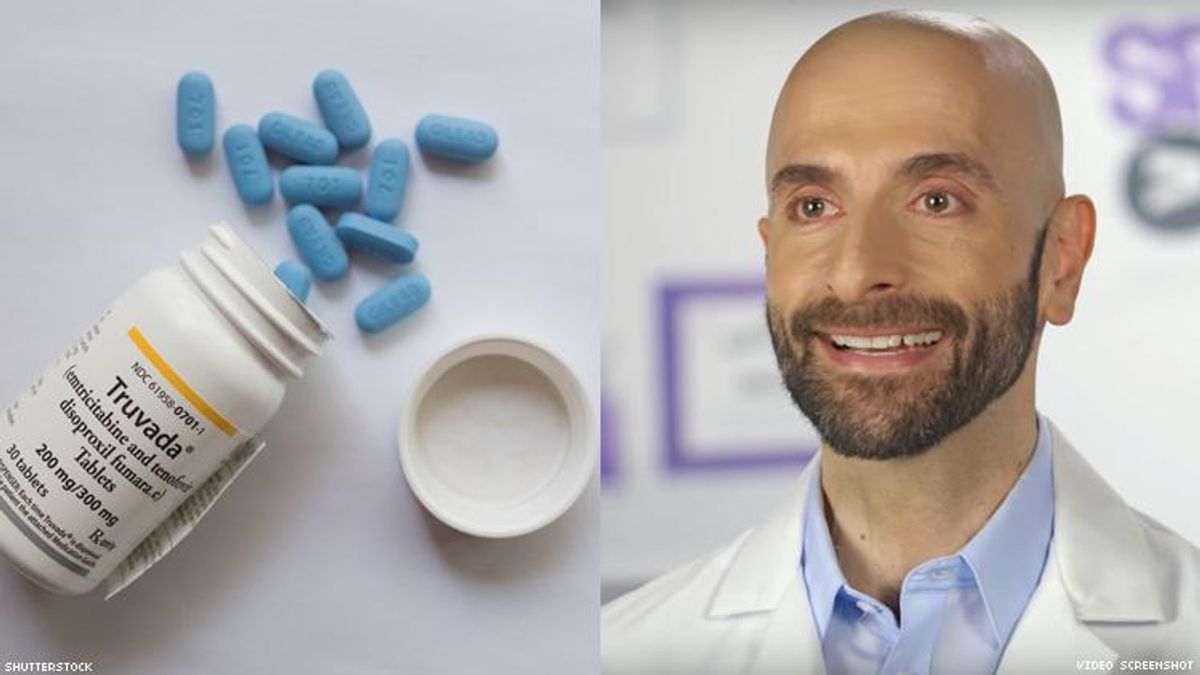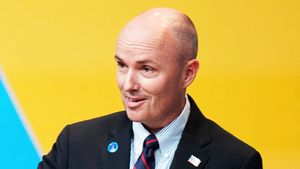After news broke that an Australian man had become the seventh reported instance of a person becoming HIV positive while using PrEP, many took to social media including Facebook (in the comments of Out's post for example) to voice criticisms. The crux of some of those criticisms pointed specifically to the PrEP regimen employed by the patient: on demand. Also called the 2-1-1 method, this process of prevention involves taking PrEP before and after sexual encounters as opposed to daily.
An on-demand PrEP user must take two tablets of PrEP two to 24 hours before having sex. Then, a third tablet after 24 hours and a fourth after 48 hours. The process can also be extended: if someone plans to have sex on Monday, they should take two pills two to 24 hours before, and then another on Tuesday and another on Wednesday. If they have sex again on Tuesday, they should take another pill on Thursday, repeating the process depending on how many days they are sexually active. And contrary to the belief of some, this is a science-backed, doctor approved method. This timing though, is important.
"I'm not doubting that he was taking it as per his regimen, but I don't know what your Friday night is like, but I don't always know I'm going to have sex, so it's a little complicated," Dr. Demetre Daskalakis, deputy commissioner for the Division of Disease Control at the New York City Department of Health and Mental Hygiene, tells Out. "But at the end of the day if you're a good planner and you have your pill box like in your pocket or whatever you do, ultimately this is a perfectly good strategy."
While only some US cities like San Francisco subscribe to on demand as a guideline, various countries like Australia and bodies of professionals like the International AIDS Society, have adopted it as a viable option. And with good reason: studies have shown on demand PrEP usage, when done correctly, to be as effective as daily usage.
"It doesn't make my pulse race to hear this, all this does is remind me that PrEP isn't perfect," Dr. Daskalakis says. We spoke to Daskalakis about the new Australia case, whether on demand PrEP is truly effective and why some people favor it over daily usage.
I'm sure that by now you've seen the most recent case of someone seroconverting while adhering to PrEP on demand and would start off by getting your reaction.
I think that very much like we talk about daily PrEP, it is a very effective intervention. It works really, really well but nothing is foolproof. I think PrEP on demand has a lot of really, really strong science behind it that says that it's a potentially feasible option who individuals who engage in anal sex and are at risk for HIV, as an alternative for daily pre-exposure prophylaxis. I'm being very specific about that because there is really no data in individuals who have receptive vaginal sex. But for individuals exclusively having anal sex, PrEP on demand is a really good option.
And just like everything in science, nothing is 100% foolproof. I think we know that we have cases that have been reported in the media that are a breakthrough but when you talk to people in public health you'll find that there are more than the ones that are just reported but they are all exceedingly rare. For the occasional infection that happens, many, many, many have been prevented.
The bottom line is PrEP works. You may have moments where there is a break through but it is rare. This is an expected outcome of PrEP.
There's a notion online that this person went rogue and was using PrEP in a way that it wasn't intended for.
No. He was doing 2-1-1 which is an evidenced based strategy, that may not be "on guideline" but is 100% with science.
But also, as he is internationally, from my understanding it is a guideline in some places outside of the US.
For sure! Absolutely. The CDC hasn't signed up with 2-1-1 yet, they haven't signed up for PrEP on demand -- there's some jurisdictions that are looking into it and places in the States that have -- but major guideline organizations like international AIDS Society USA, which is a domestic society, it's in their guidelines. And between the studies, there's a good database of data that says it's a good strategy.
Right now, the US guideline says daily PrEP is the way to go but the reality is, for some people, daily PrEP isn't an option whether because they don't want to take a pill a day or they want to minimize exposure to the drug. From the scientific perspective, it's 100% feasible. 100% data supported.
Australia does have PrEP "on demand" strategy as a guideline so the bottom line is he was not rogue. This is an effective strategy. Here in New York, daily is the guideline but we are seriously talking about expanding that to 2-1-1 as well.
Though the most recent studies say that PrEP used "on demand" is just as effective as when used daily, there was a 2016 study that had it at only 86% effective. Can you talk to me about that?
Yes, that was the study that brought up PrEP on demand in general. I think, ultimately, 86% is pretty great and if I'm remembering correctly the 86% was for overall. But if you look at the people who were actually taking the drug per the regimen, it was well into the 90s. It's really efficacious. Essentially this was a pessimistic view of the method, and if it was 86% effective: Slam dunk. That worked. They did good science and just didn't exclude the people in the statistics that weren't taking it right.
The next thing was Prevnir study which was a real world study. People came in and were asked do you want PrEP daily or on demand and the majority chose on demand. Those who contracted HIV were those not adhering to their medicine.
Lastly, can you talk about the health benefits or differences when you're thinking about the on demand regimen versus the daily?
There's the idea that the less you are exposed to a drug, the less likely you are to see the long term effects and that's probably true. [Some have reported issues with bones and kidneys as a side effect of PrEP.] I'll give you an example from my own practice: I have a young man who is very sexually active, he doesn't use condoms 100% of the time but he does have problems with some baseline kidney disease. It's not terrible but it's something where his kidney doctor doesn't want him to go on PrEP every day. So what we came on was, this is a great person for PrEP on demand. HIs kidney function has been fine and he feels secure in his sexuality and sex life that he's not going to acquire HIV.
There's other people who would have other reasons this may work. One of them may be that at the end of the day if you're not having tons and tons of sex, but you're having occasional sex where you're at risk for HIV. Another is: I don't want to pay that much for this drug if I'm not using it every month, so I just want to use it when I want it. So some people do it because it's more financially feasible for them, and the data says that's effective.
As guidelines always follow data, I expect for more guidelines to eventually say that PrEP on demand is a viable option. I don't think this one breakthrough will stand in the way of that.
RELATED | Long-Lasting, Injectable PrEP Is Coming Soon, Scientists Say

























































































